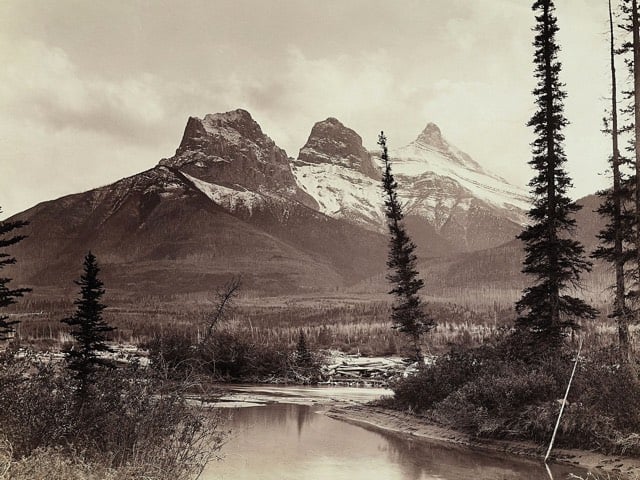
From Richard Grant, the real life story of Hugh Glass, who is played by Leonardo DiCaprio in The Revenant. As Grant allows, the story of Glass’s life is “a blend of history and mythology” and is only a little less plausible than the events of the movie (and the novel on which the movie is based).
The expedition leader, a terminally luckless man named Andrew Henry, assigned two hunters to travel ahead of the main group. Most historians think that Hugh Glass was not one of them, because these northern plains and mountains were a new environment to him, and other men had more experience hunting here. But Glass was a loner by nature and stubborn as they come, and it seems clear that he was off breaking orders, hunting by himself when he surprised a huge female grizzly bear with cubs.
She might have weighed 500 pounds, even 800 is not inconceivable. He shot her as she charged, but as he surely knew, even a .53 calibre rifle ball was unlikely to stop an enraged grizzly. She ripped his scalp to ribbons with her three-inch claws and shredded his throat. Accounts of the mauling vary slightly, but all agree that Glass was “tore nearly all to peases”, as one mountain man later recorded. There were deep lacerations on his back, his face, one leg, his chest and one shoulder and arm. In Michael Punke’s book, based on Glass’s life, she picks him up in her teeth and shakes him. Most versions of the story have the dead bear, having finally succumbed to the rifle wound, lying on top of the half-dead Glass.
I saw The Revenant two weeks ago and thought it was good but not great. Underwhelmed, I guess I’d say. As usual, Leo was too distracting as himself to fully blend into the rest of the movie…Leo’s DiCaprio-ness always breaks the fourth wall for me.
Englishman and writer Richard Grant moved from lower Manhattan to rural Mississippi. He wrote a book about the experience, Dispatches from Pluto: Lost and Found in the Mississippi Delta.
On a remote, isolated strip of land, three miles beyond the tiny community of Pluto, Richard and his girlfriend, Mariah, embark on a new life. They learn to hunt, grow their own food, and fend off alligators, snakes, and varmints galore. They befriend an array of unforgettable local characters-blues legend T-Model Ford, cookbook maven Martha Foose, catfish farmers, eccentric millionaires, and the actor Morgan Freeman. Grant brings an adept, empathetic eye to the fascinating people he meets, capturing the rich, extraordinary culture of the Delta, while tracking its utterly bizarre and criminal extremes. Reporting from all angles as only an outsider can, Grant also delves deeply into the Delta’s lingering racial tensions. He finds that de facto segregation continues. Yet even as he observes major structural problems, he encounters many close, loving, and interdependent relationships between black and white families-and good reasons for hope.
Grant shared a bit of what’s in the book for the NY Times.
Mississippians were generally puzzled by our arrival, but warm and welcoming. As we were unpacking, an African-American tractor driver stopped by and talked for an hour. On the second day, a white family from Pluto came over with a bottle of wine and a selection of guns to shoot. Cathy Thompson, a labor and delivery nurse, had bought an AK-47 for stress relief during menopause. “I don’t know what women in New York do,” she said in a fast-paced drawl. “Probably see a therapist, or get on meds. I got my AK and a T-shirt that said, ‘I’m Out of Estrogen and I Have a Gun.’”
It soon became apparent that a) we held very different political views and b) this was not going to be a problem. Noting our lack of furniture, Cathy went through her storage areas and produced two beds, a couch, a kitchen table and chairs, two armchairs and two wingback chairs. “Y’all can have this stuff on permanent loan,” she said. “And I noticed y’all just have the one vehicle. That’s going to get inconvenient out here, so I want you to drive our Envoy whenever you need to, and think of it as your second vehicle. I’ll show you where the keys are.”






Stay Connected